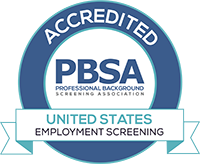BLOG
Georgia Passed A Bill To Expunge Criminal Records
October 6, 2020
About The Law
The Georgia General Assembly reviewed a proposed bill that would create a method for residents to petition to have qualified misdemeanors and felonies sealed. After consideration, the Assembly unanimously voted in favor of House Bill 528 (HB528).
HB528 states Georgians must file their requests at a court that is in the jurisdiction where a conviction occurred. To be eligible, the petitioner must have completed their sentence and not been convicted of additional felonies for at least five years or misdemeanors for at least three.
Each request will be reviewed by a judge who shall determine if the conviction is eligible. Georgia residents will be allowed to file two such petitions in their lifetimes.
Support For The Bill
From its introduction, the bill received strong support. Keith Fitzgerald, a Defense Attorney in Georgia, thinks this is a big step in the right direction. He commented: "When someone has been convicted of a crime, that crime has an amount of time that the government has decided you have to do as punishment of that crime. The problem is that society then continues to punish you after that crime. That crime could have been a little mistake, that's what misdemeanors are."
GA lawmakers believe HB528 is a great way to assist people who have minor criminal records. Individuals with any type of conviction often have difficulty finding opportunities for employment, housing and other critical aspects of life. By passing this bill, Georgia is making a commitment to help people rejoin society.
What It Means To Seal A Record
When convictions are sealed, they are no longer available to the public. These records cannot be included on background checks used for employment, tenant screening or related purposes. Georgians who have records sealed can move forward as if their offenses never occurred.
Some employers may still be able to access sealed records. For example, government agencies and organizations that serve vulnerable populations, such as elderly individuals or children, will likely be able to review convictions after they are sealed.
Not Every Record Is Eligible
Some criminal records cannot be sealed, including:
- Sexual offenses.
- Crimes against children.
- Keeping a place of prostitution.
- Violent offenses.
When reviewing requests to seal records, judges will consider factors including:
- The nature and seriousness of an offense.
- The age of a person when the offense occurred.
- The length of time since an offense was committed.
- The person’s criminal history.
- Circumstances relating to the individual, including, but not limited to:
- Mitigating circumstances and conduct since the offense.
- Circumstances relative to the offense.
- Feedback from the victims (when available).
Georgia Employers Should Still Run Background Checks
Second chance laws like HB528 give people the ability to have minor or outdated criminal records sealed. However, individuals may have convictions of which prospective employers should be aware. Comprehensive background checks give hiring managers information that helps them determine if a candidate is qualified and whether they pose an undue risk to staff, customers or the business.
Running background checks is a crucial part of every organization’s due diligence process. If you are bringing on employees, contractors or volunteers, please contact us. Our experienced team can help you customize screening packages that are ideal for any position in your industry. We are available to assist you Monday through Friday from 5am to 6pm PT.







